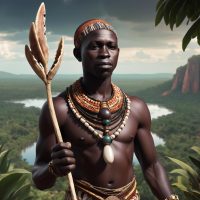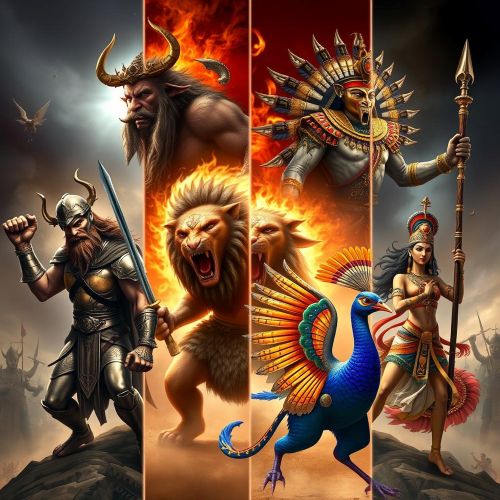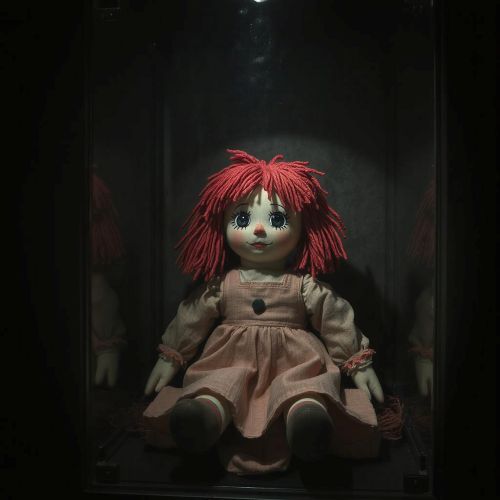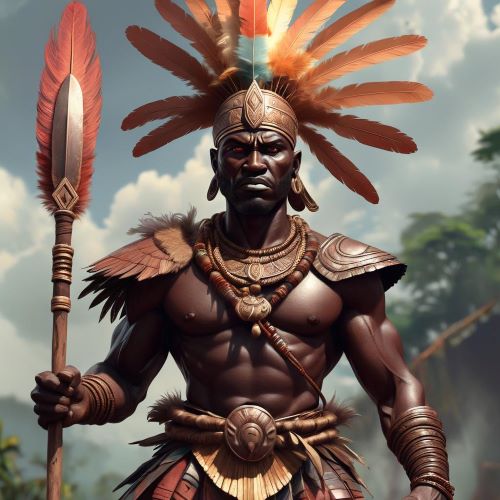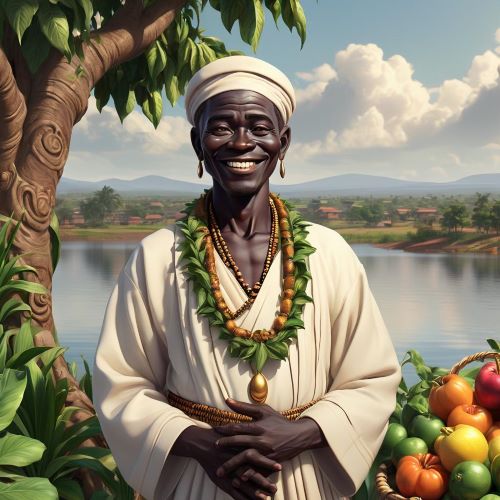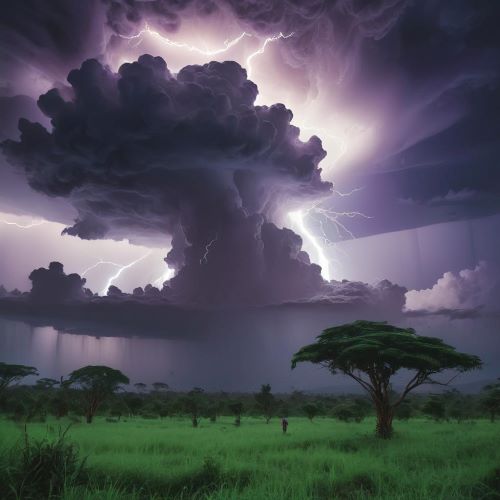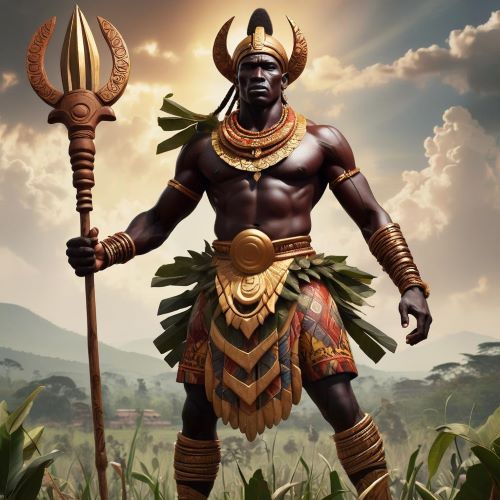Wanga : God of Healing
Listen
At a glance
| Description | |
|---|---|
| Origin | Baganda Mythology |
| Classification | Gods |
| Family Members | Wadda (Father), Bukulu (Mother) |
| Region | Uganda |
| Associated With | Health, Healing |
Wanga
Introduction
Wanga, a revered deity among the Baganda pantheon of gods, is one of the balubaale. Known for his association with divination and health, he holds a prominent place in Baganda mythology, being one of the first heroes to ascend into godhood. His significance extends beyond mere legend; Wanga’s influence permeates various aspects of Baganda culture and tradition. Within the intricate fabric of Baganda mythology, Wanga emerges as a potent symbol of mysticism and authority. Both revered and feared, he embodies the spiritual essence woven into the folklore of the Baganda people of Uganda. Occupying a central role in the belief system of the Ganda people, Wanga represents the profound connection they held between spiritual well-being and physical health.
Physical Traits
Depictions of Wanga are scant, veiling his physical form in mystery. Yet, interpretations often portray him as a venerable sage, embodying the wisdom accrued through healing and prophecy. Adorned in traditional healer garb, such as animal skins or sacred vestments, he signifies his divine rank. While precise physical attributes remain elusive, African mythology commonly depicts deities in human form or as elements of nature. As the patron of divination and health, Wanga’s representations may incorporate symbols reflective of these realms.
In various accounts, Wanga emerges as a towering figure, evoking reverence with his commanding presence. Legends speak of his regal demeanor, with eyes aglow with unearthly insight. His visage, simultaneously fearsome and mesmerizing, leaves witnesses spellbound by his celestial aura. Tales weave narratives of Wanga bedecked in opulent attire, a manifestation of his enigmatic essence.
Family
In Baganda mythology, Wanga often emerges as a solitary figure, his familial connections shrouded in mystery. Yet, certain versions of the myth hint at ties to other deities within the pantheon, though the details of these relationships vary among storytellers. Despite the ambiguity surrounding his lineage, Wanga’s influence transcends familial bounds, shaping the destinies of mortals and gods alike.
Wanga’s lineage traces back to the very genesis of the Baganda creation narrative. Born to Wadda and the divine being Bukulu, he occupies a place among the earliest heroes of the Baganda people. Bukulu, crafted by the supreme god Katonda, descended to earth alongside Kintu, the inaugural Muganda king. This esteemed ancestry intertwines Wanga’s fate with the foundational myths of Baganda lore, culminating in his eventual ascension to godhood, spurred by his extraordinary prowess.
Among his siblings, Wanga counts Musisi, another deity linked to seismic phenomena, and Laba, whose domain remains shrouded in relative obscurity. Thus, Wanga’s familial connections, though enigmatic, weave a narrative thread that binds him to the very fabric of Baganda mythology.
Other names
Wanga, the predominant name by which he is known in Baganda mythology, underscores his significance within their lore. However, African mythology boasts a rich tapestry of deities, often with varied appellations across tribes and regions. Within different contexts or dialects, Wanga may assume alternative identities, reflecting the diverse cultural landscape.
In certain locales, he might be recognized as “Wangaya,” a derivative term signifying his association with the region of Wanga. Moreover, owing to his expertise in divination, titles such as “Mujjanjagga” or “Mujjanzi,” denoting a seer or diviner, might be bestowed upon him. While Wanga remains the primary designation for this enigmatic figure, Baganda mythology reveals additional epithets that enrich our understanding of his multifaceted persona.
Among these alternative titles, “Ssewaangirana,” meaning “the one who sees all,” and “Mukasa,” typically affiliated with water deities in Baganda folklore, stand out. These alternative appellations offer nuanced perspectives on Wanga’s character, emphasizing his role as a guardian of knowledge and a master of elemental forces. Thus, the diversity of names attributed to Wanga underscores his enduring influence and multifaceted nature within the rich tapestry of Baganda mythology.
Powers and Abilities
Wanga’s dominion over divination and health underscores his significance in Baganda mythology, suggesting his invocation for both healing and prophetic insights. An enduring myth recounts a pivotal moment when the Sun plummeted from the sky, casting darkness over the land. In dire need, the king of Baganda sought Wanga’s aid, and through his intervention, the celestial orb was restored to its celestial perch. This tale serves as a testament to Wanga’s potency and his role as humanity’s benefactor.
Wanga’s gift lay in peering into the veils of time, deciphering the whims of the spirits. The Baganda community turned to him for counsel on diverse matters, be it strategies for war, governance, personal well-being, or agricultural prosperity. Employing an array of divinatory techniques, he likely employed objects like cowrie shells, animal entrails, or specialized throwing sticks to unveil the mysteries of fate.
Wanga’s prowess in matters of health rendered him indispensable in Baganda society. Revered as a custodian of curative wisdom, he was believed to hold the keys to remedy ailments, providing both physical treatments derived from herbs and plants, as well as spiritual interventions to placate vexed spirits deemed responsible for maladies.
The symbiotic relationship between these two domains accentuates Wanga’s significance. His capacity to discern the origins of afflictions, whether corporeal or spiritual, undoubtedly augmented his efficacy as a healer. Renowned for his peerless abilities, Wanga transcends mortal and immortal realms alike. As a deity, his keen insight pierces through the fabric of time, granting him mastery over past, present, and future. Commanding the elements, he shapes the world to his will, while his shapeshifting prowess allows him to traverse realms incognito.
Modern Day Influence
The enduring legacy of Wanga and Baganda mythology persists into the modern era, as the Baganda people uphold their reverence for the balubaale through ongoing rituals and ceremonies. Temples dedicated to these revered deities, including Wanga, stand as both places of worship and bastions of cultural preservation. Across generations, the myths and legends encapsulating figures like Wanga are meticulously passed down, ensuring the vibrancy of Baganda’s cultural heritage.
Wanga’s significance transcended his roles in divination and healing; he functioned as a conduit between the mortal realm and the domain of spirits. Regarded as an intermediary, his presence offered solace and advocacy, addressing both mundane concerns and spiritual matters before the divine. His counsel and interventions likely played pivotal roles in upholding societal harmony and nurturing communal well-being among the Baganda.
Despite the gradual decline of traditional worship practices with the advent of Christianity, Wanga’s influence endures through various avenues. The archetype of the diviner-healer persists in contemporary Ugandan society. Practitioners, known as “Abagome,” sometimes incorporate elements from Wanga’s narrative or invoke his name during their healing rituals, preserving aspects of his legacy. Wanga’s association with wisdom and vitality echoes through Baganda proverbs and sayings. References to his name or attributes serve as poignant reminders of the importance of seeking guidance and maintaining one’s health. Wanga remains a recurring motif in Ugandan art and literature. Whether depicted in paintings, sculptures, or referenced in contemporary literary works, he continues to serve as a conduit to the rich cultural tapestry of the Baganda people, ensuring that his legacy endures in the hearts and minds of future generations.
Related Images
Frequently Asked Questions
What is lorem Ipsum?
I am text block. Click edit button to change this text. Lorem ipsum dolor sit amet, consectetur adipiscing elit. Ut elit tellus, luctus nec ullamcorper mattis, pulvinar dapibus leo.
What is lorem Ipsum?
I am text block. Click edit button to change this text. Lorem ipsum dolor sit amet, consectetur adipiscing elit. Ut elit tellus, luctus nec ullamcorper mattis, pulvinar dapibus leo.
What is lorem Ipsum?
I am text block. Click edit button to change this text. Lorem ipsum dolor sit amet, consectetur adipiscing elit. Ut elit tellus, luctus nec ullamcorper mattis, pulvinar dapibus leo.
What is lorem Ipsum?
I am text block. Click edit button to change this text. Lorem ipsum dolor sit amet, consectetur adipiscing elit. Ut elit tellus, luctus nec ullamcorper mattis, pulvinar dapibus leo.
What is lorem Ipsum?
I am text block. Click edit button to change this text. Lorem ipsum dolor sit amet, consectetur adipiscing elit. Ut elit tellus, luctus nec ullamcorper mattis, pulvinar dapibus leo.

